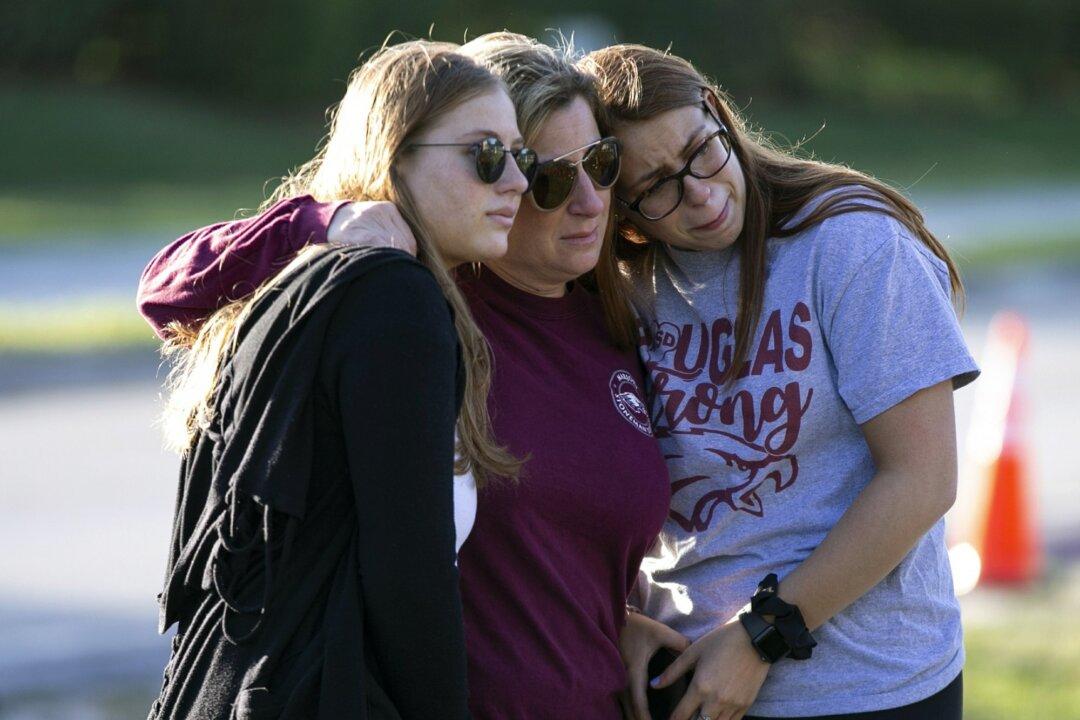Families of nearly all of the victims of the 2018 mass shooting at Marjory Stoneman Douglas High School in Parkland, Florida, have reached a settlement with the U.S. Justice Department over the FBI’s handling of tips involving the gunman.
“The parties hereby advise the Court that they have reached an agreement to settle all of the claims at issue,” a court filing on Monday said. The Justice Department will pay approximately $130 million to 40 survivors and families of victims of the shooting.





